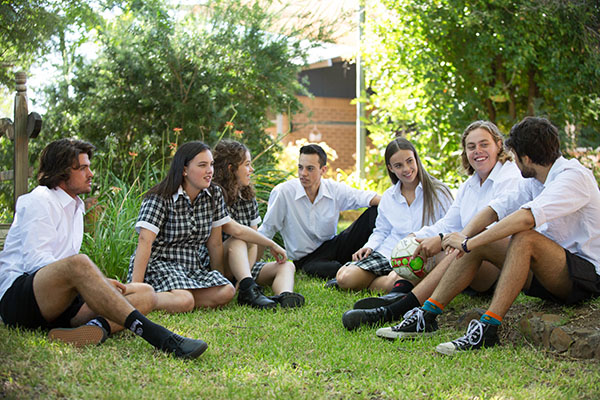Overview
Alignment with Be You Domains
-
Mentally Healthy Communities
Alignment with Early Years Learning Framework (EYLF)
- Children are confident and involved learners
- Children are connected with and contribute to their world
- Children are effective communicators
- Children have a strong sense of identity
- Children have a strong sense of wellbeing
Alignment with Australian Curriculum
- Health and PE
- Humanities and Social Sciences
Target audience
- Secondary school
Target groups
- Small group
- Whole class
Aims
The program is a long-term wellbeing experience that give students a lived experience of positive psychology. The program aims for students to harness skills and ways of thinking that will promote resilience and wellbeing for the rest of their lives. Students understand the importance of belonging and connections, emotional intelligence and recognise the links between positive relationships and wellbeing. Invictus combines outdoor education, skill mastery, soft skill acquisition and service learning to help develop the whole child.Program theory
The program lessons draw upon the research of Dr Martin Seligman (PERMA model), Dr Arne Rubinstein (Rites of Passage), Dr Shelly Gable (ACR theory), Dr Angella-Lee Duckworth (GRIT), Dr Lee Waters (strengths-based model), Dr Daniel Goleman (EQ), among others.Topics
The program is built around four elements: network, master, journey and serve, each covering a wide range of issues.Cost
Program structure
There are 128 sessions. One session per week over 4 years (long-term multi-modal wellbeing intervention).Instructor
- Psychologist
- Educator
- Wellbeing leader
Instructor training
Five hours of NESA Registered Professional Training delivered by a trained instructor from the Invictus Wellbeing Institute.Supporting resources or materials available with program
- Manual
- Online webinars
- Workbook
Ongoing support
Instructors are able to request additional training sessions, and schools can also request research, phone and email support. Invictus runs an annual training conference.Parent involvement
- Attend information sessions
- Written information provided to parents
Origin of program
Not provided
Invictus Wellbeing Institute
Program authors
Joshua Brown
- 182-222 Lake Rd,Wallsend NSW 2287 Australia
Ratings
Summary of evidence factors
This is a summary of the evaluation or research study characteristics that contribute to the program’s evidence rating.
|
Positive impact on at least one outcome for children and/or young people?
The study reported positive outcomes. |
No |
|---|---|
|
Link between program description and theory of change
Theory of change refers to whether there was a comprehensive description and illustration of how and why a desired change is expected to happen in a particular context. |
None |
|
Study design
Type of study design reported. |
Qualitative/Post cohort |
|
Independence
The degree to which the program authors were involved in the research. |
None |
Summary of implementation factors
This is a summary of the program’s characteristics that contribute to its implementation rating.
|
Feedback sought from participants
Participants enjoyed the program and understood its benefits. |
Yes |
|---|---|
|
Feedback sought from instructors
Instructors enjoyed the program and understood its benefits. |
No |
|
Groups program is not suitable for
Groups the program wouldn't be suitable for or that required further research to determine suitability. |
Not assessed |
|
Training provided during study
The model of training provided. |
Face to face, all instructors, in person |
|
Ongoing instructor support provided during study
Whether ongoing support is provided. |
Yes |
Context
This is a summary of the context in which the evidence for the program was established.
|
Study Participants
Pre school, primary school (Foundation to Year 6), secondary school (Years 7 to 12). |
Primary school |
|---|---|
|
Country of Study/s
The location in which the evidence or research was conducted. |
|
|
Evaluation of program in culturally and linguistically diverse populations
Provider has included culturally and linguistically diverse people when assessing the program. |
No |
|
Evaluation of program in Aboriginal and Torres Strait Islander children and young people
Provider has included Aboriginal and Torres Strait Islander peoples when assessing the program. |
No |
|
Evaluation of program in low socioeconomic groups
Program has evaluated a diverse socio-economic population in their research. |
No |
|
Developmental based adaptations to program design and delivery
Shorter sessions for younger students or activities are adjusted for age appropriateness. |
No |
|
Evaluation of program in children and young people with disability and/or learning difference
Provider has included participants with a disability or learning difference when assessing the program. |
No |
Last updated: 22 September 2021
